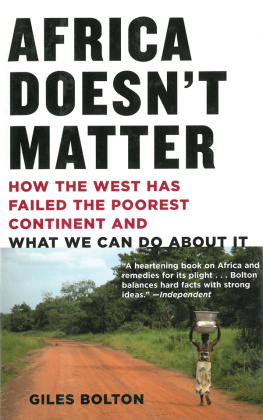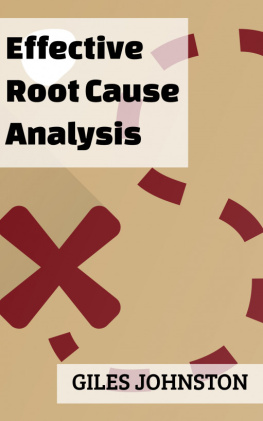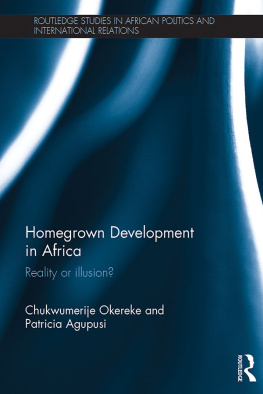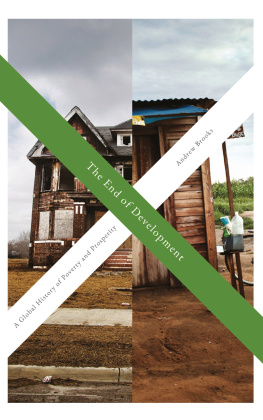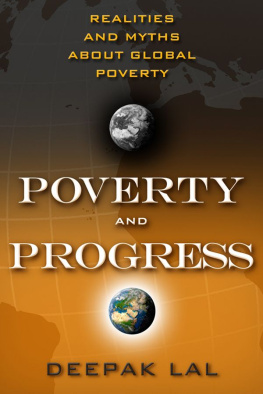CONTENTS
About the Book
Do you know why Africa is so poor? What really happens to your aid money? Why trade rules fail African countries and yet cost you too? Weve heard it all before: the corrupt leaders, heartless global corporations, the wicked World Bank.
But the answers are much closer to home... and so are the solutions.
When Giles Bolton began working in the world of aid and development, he travelled to Africa convinced that he could solve problems, save villages and sing songs with the locals under a shimmering sunset. The reality proved rather less romantic, and far more shocking...
Aid and Other Dirty Business is a radical, brilliantly readable and totally original approach to an unending problem. It may change your life, but, more important, it will help you change the lives of others.
About the Author
Born in London in 1973, Giles Bolton has been closely involved in Africa and its development for more than ten years as civil servant, diplomat and aid worker. From 1996 until 2004 he worked for the British Governments Department for International Development (DFID), in countries such as Kenya, Rwanda and Iraq. This is his first book.
For my parents
INTRODUCTION
Rwanda, first week. Caroline rushed up the stairs and burst into the office I had taken over from her.
Giles, youve got to come quickly. I didnt have the heart to stop it.
Caroline was my predecessor as head of the British governments aid programme in this country unmade by genocide only a few years before. I had just arrived, with no real idea what to expect. My previous postings with the Department for International Development better known as DFID had been far less senior and I felt as green as the lush city sitting quietly in view of the window.
I looked up from my desk apprehensively. The last thing I wanted was some kind of early crisis.
What is it? Stop what?
Its Sylvestre, the gardener at the house. Hes cutting DFID in ten-foot letters into the lawn and planting them with flowers. Its supposed to be a welcome present for when you move in.
We drove across Rwandas small capital, Kigali, to the house where Caroline was packing up the last of her things, an incongruously Swiss-style residence that was all small windows and big eaves, fronted by some ruthlessly pruned flowerbeds and a large flat lawn. Rather like the people, Kigali showed few surface scars of its violent past, and the journey from office to house was a pleasant one that took us from one of the citys two main hills to its other, via a poorer settlement in the valley between. Every spare bit of land along the way, from front yards to tiny patches of earth on street corners, was taken up with carefully tended maize stalks and banana palms, while the outlines of the hills were crenellated with lanky trees rising from the gardens of the bigger houses, like mine, that hogged the higher plots.
Two welcoming guards let us in through red metal gates and, true enough, there was Sylvestre planting away. The letters were now fully carved out and hed got halfway up the F with a series of small bushes. This was bad. I was already intimidated by the thought of moving to a house large enough to come with staff, and desperately wanted to make a good first impression. But I really didnt fancy two years of seeing work initials inscribed on homes soil, taking up almost the whole lawn.
Sylvestre had stopped working and had removed his battered straw hat, which he held humbly in front of him, revealing the lean, friendly and nervous face of a man in his early forties. It was the first time hed met the new boss and he too clearly wanted to make a good impression. I suddenly felt much younger than my twenty-seven years. Adjusting an unseasonably warm woollen suit, bemused by the deference and unworthy of my new responsibilities, I stepped forward to introduce myself.
I spent two years in Rwanda and two years before that in Kenya; long enough to realise that the West doesnt always know what Africa wants, any more than Kigalis gardeners understand a Londoner s taste in horticultural design. The difference, of course, is that while I could rush back to my displaced Alpine chalet and eventually agree with Sylvestre a change of plan (via a rambling and unconvincing excuse about wanting to play football across the lawn, plus consensus on some other new beds), the West doesnt have to listen to what the worlds poorest continent wants. Africa gets what we decide to give it, well intentioned or otherwise, especially when it comes to the aid we provide and the trade rules we set. So when we get them wrong, it really matters. As I learnt during my time there, while the garden was efficiently tended and the imprint left by the grassed-over letters began to fade, this happens far, far too often. What is often overlooked is how much the Western taxpayer, charity donor and shopper is ripped off too.
This book is written for people who are concerned about Africa but dont understand why its still so poor. Is it all down to corruption? What actually happens to our aid money, and how do trade rules affect us at the checkout? Can the West really make a difference in Africa? These are the questions I want to tackle. The answers Ive found are entirely my own views not the official lines of the British or any other government. I want to explain why, for all the campaigns, concerts and politicians promises to Make Poverty History, Africa will remain poor and we in the West complicit in its plight unless we change the way were allowing globalisation to develop.
O N 8 JULY 2005, the leaders of the worlds eight most industrialised nations, the G8, sat down to morning coffee in the bay-windowed Glendevon room of the prestigious Gleneagles golf hotel in Scotland. What happened next was startlingly unusual: the leaders began a detailed discussion of Africas problems and the West s part in their solutions. Never before had they devoted so much time to considering the plight of the poorest continent. Never before had they acknowledged so openly that current arrangements, including the Wests part in them, werent working.
The G8s focus on Africa was no fluke, no sudden outbreak of altruism in a foreign policy world that nowadays feels so gloomily full of threats. The run-up to Gleneagles had seen hundreds of thousands of people across the West join protests demanding fairer aid and trade terms for Africa, despite the fact that the majority had never been there. Millions attended rock concerts from London to Tokyo to Philadelphia that sang from the same hymn sheet, while billions more watched on TV.
The remarkable scale of public support was matched only by the unprecedented consensus for change between lobby groups, celebrities and the British government, whose turn it was to chair the annual G8 summit. Bono shared a platform with Bill Gates, Bob Geldof was caught hugging Tony Blair, and Brad Pitts video-message supporting reform followed one from Nelson Mandela. Fighting poverty had become as clear-cut as fighting apartheid: every right-thinking person was for it. This was the worlds last easy win, something both terribly wrong and encouragingly simple to rectify.
In the face of such overwhelming pressure, the G8 leaders did not disappoint, announcing a genuinely radical package of promises on Africa: doubling aid, cancelling the entire debt of the poorest countries, reforming trade.
Yet the astonishing thing is that most of 2005s promises werent new, as the report of Tony Blairs Commission for Africa, which underpinned the G8 commitments, acknowledged. Many had been made by Western governments before, including the doubling of aid and the reform of trade: its just that no one had delivered . Others, including the extension of debt relief, had long been demanded by African governments and development campaigners alike: its just that no one had listened.
Next page

